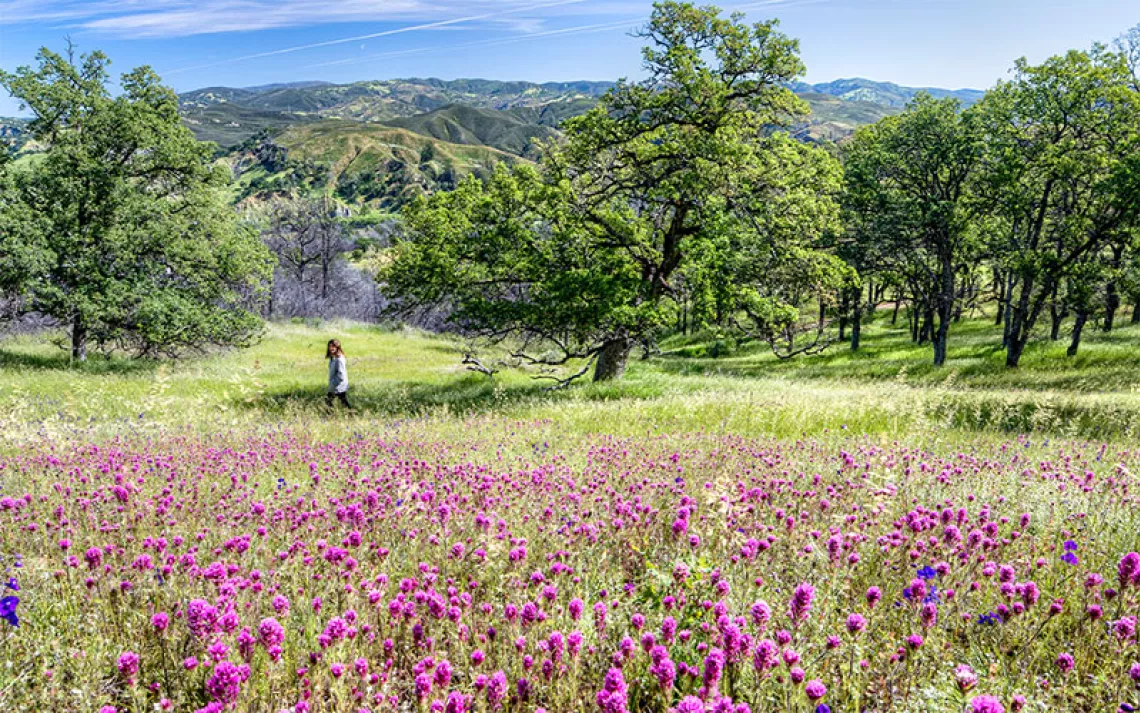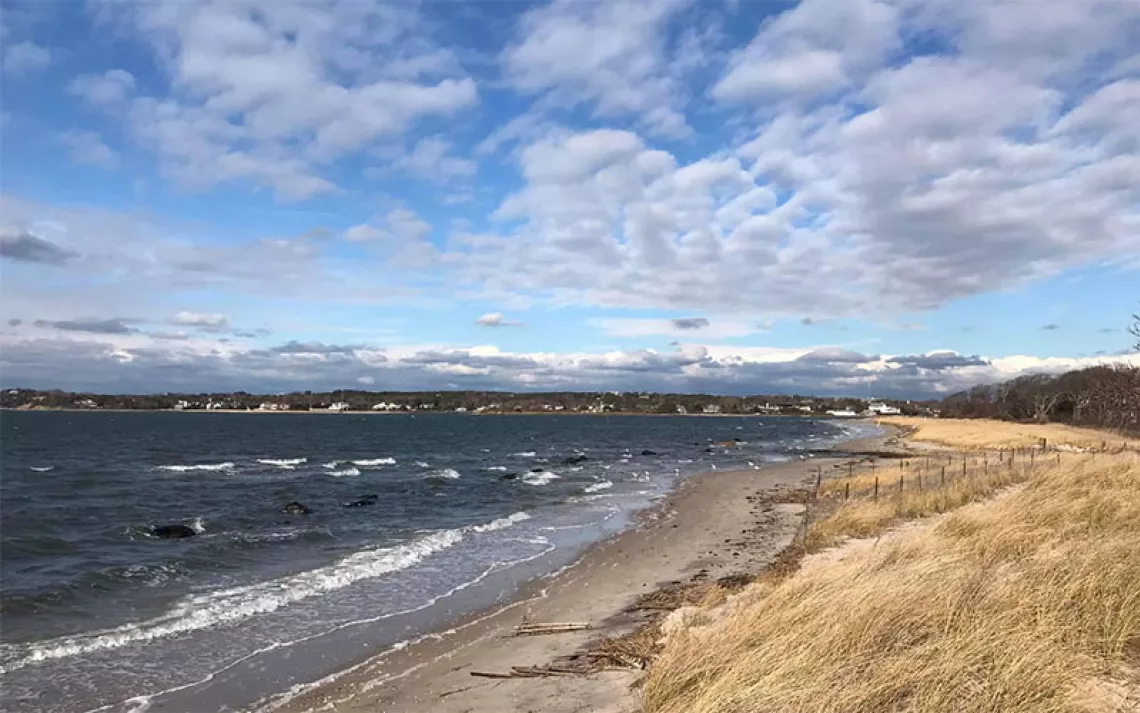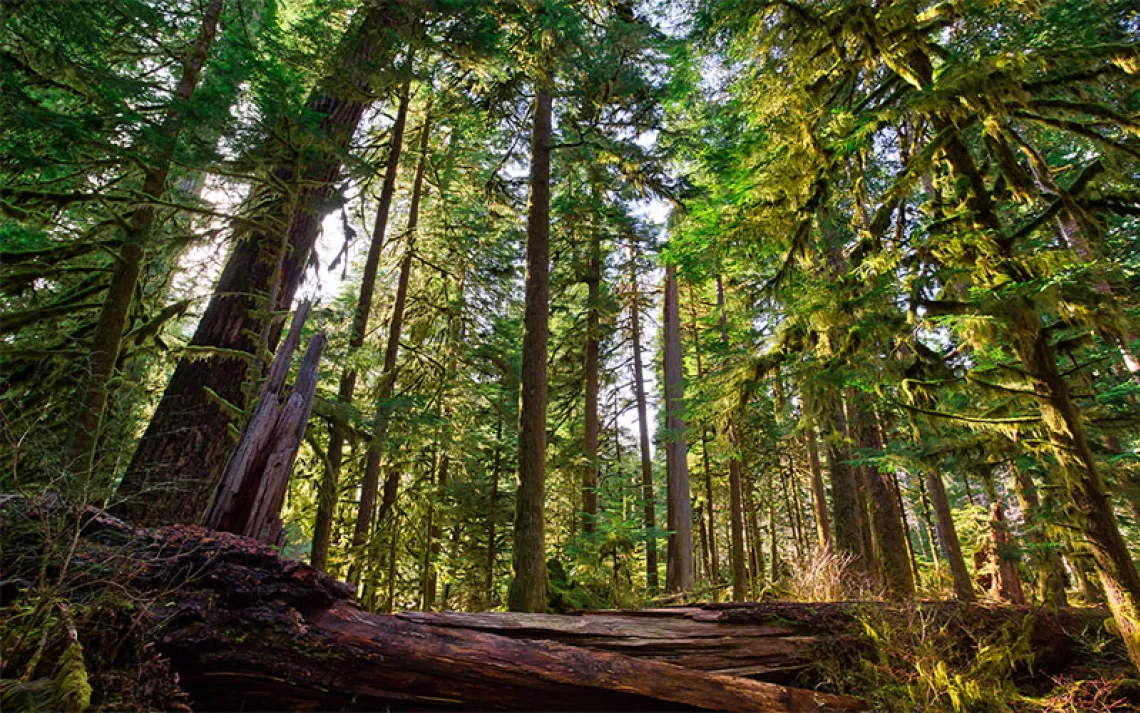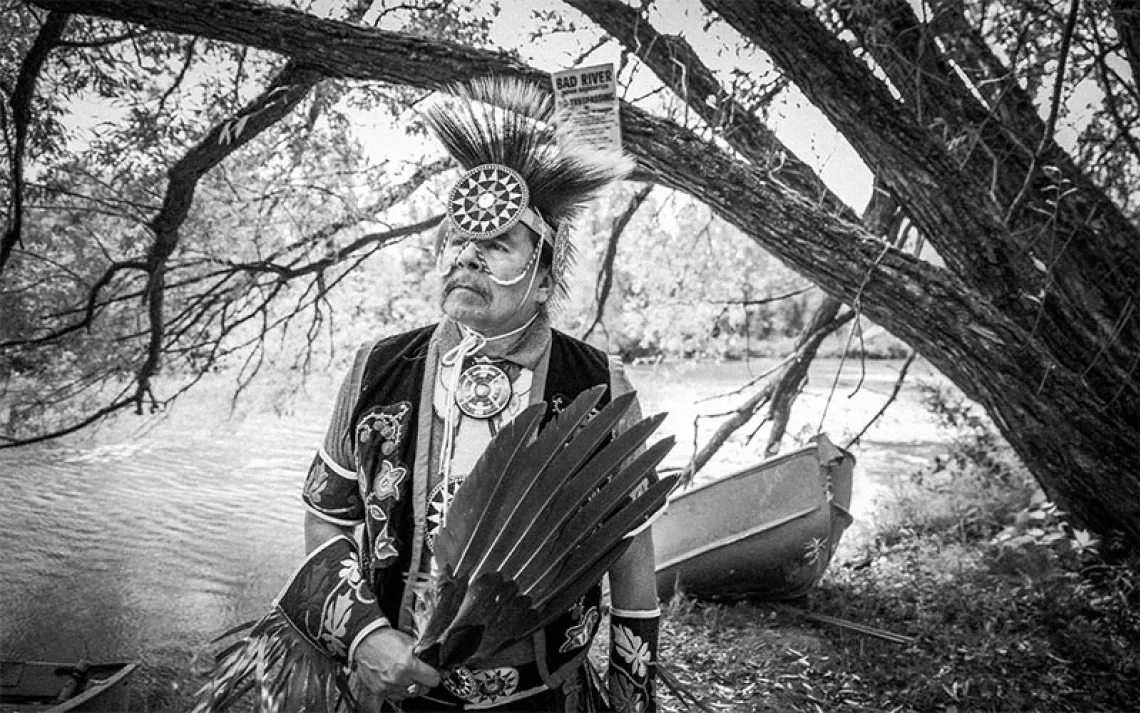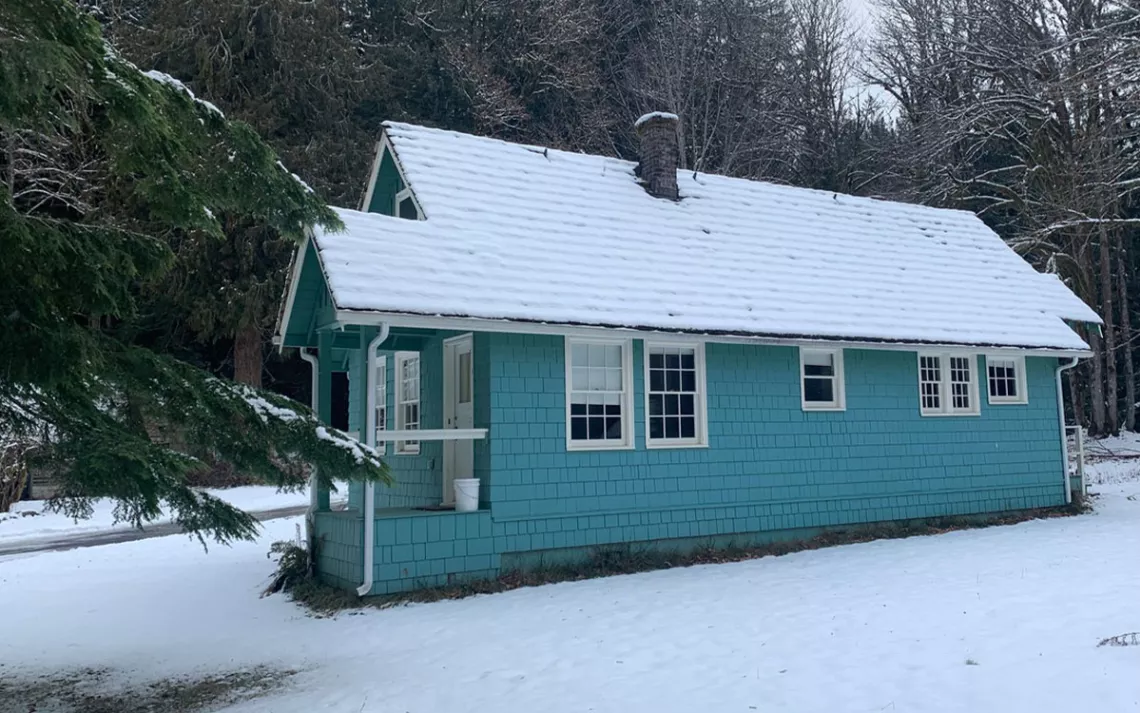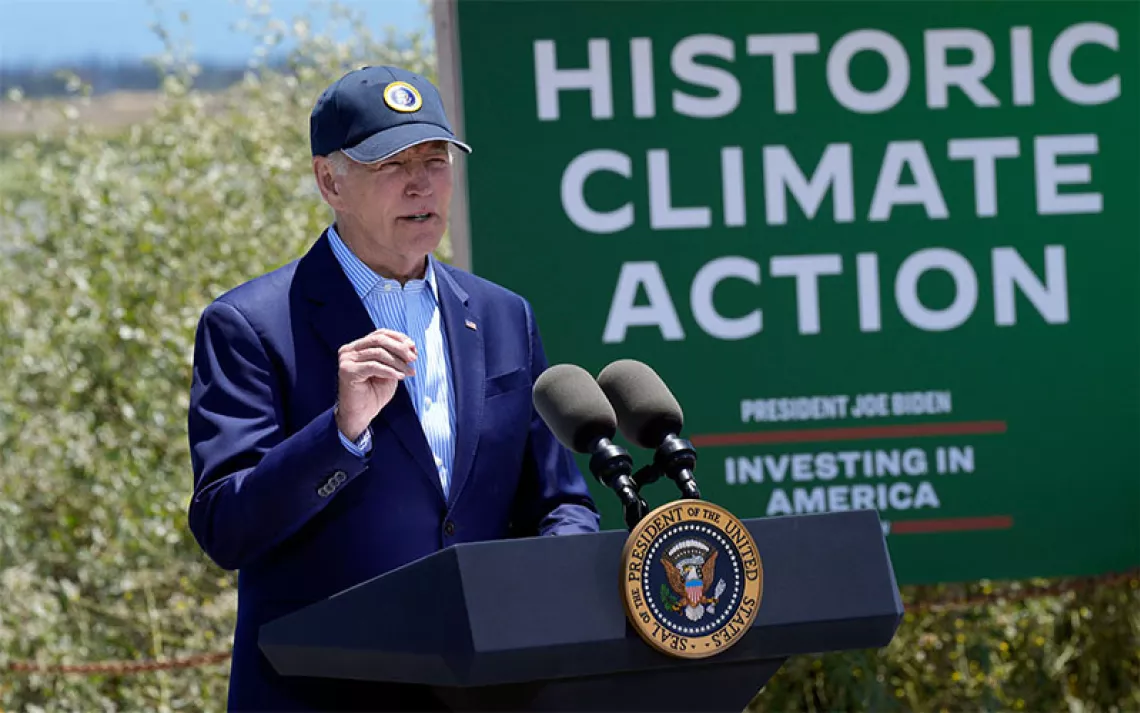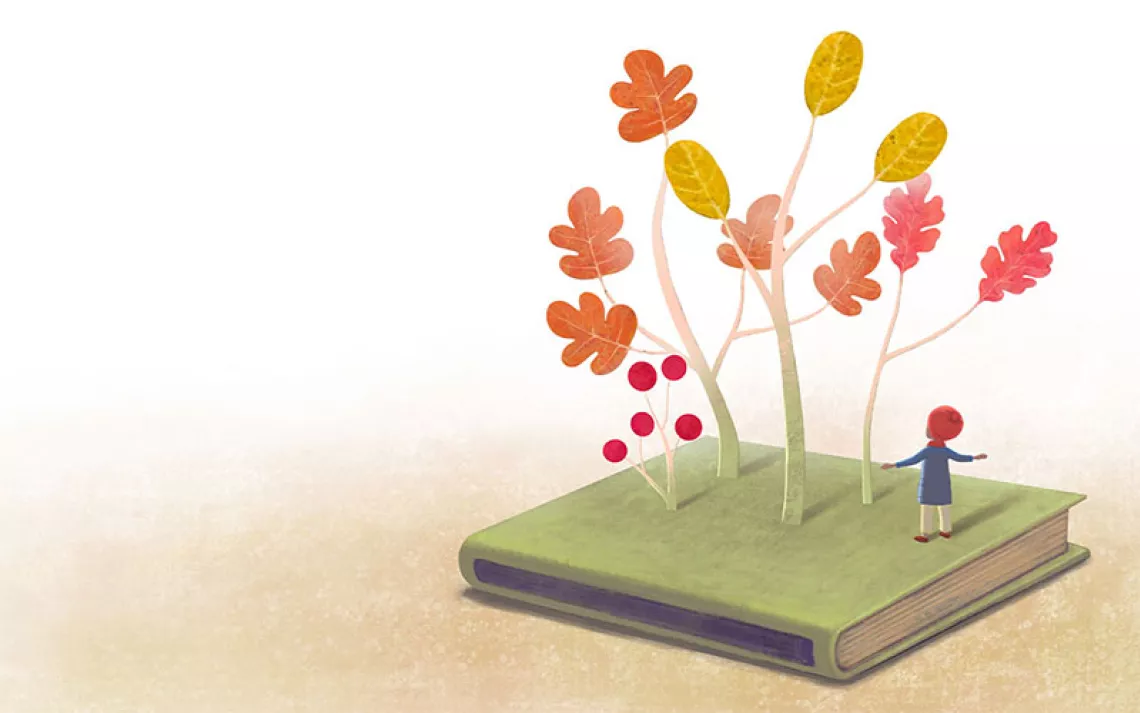My Grandfather's Shovel Is a Link to My Ancestors
Racism shaped Central Valley farmers as much as backbreaking work picking peaches and grapes
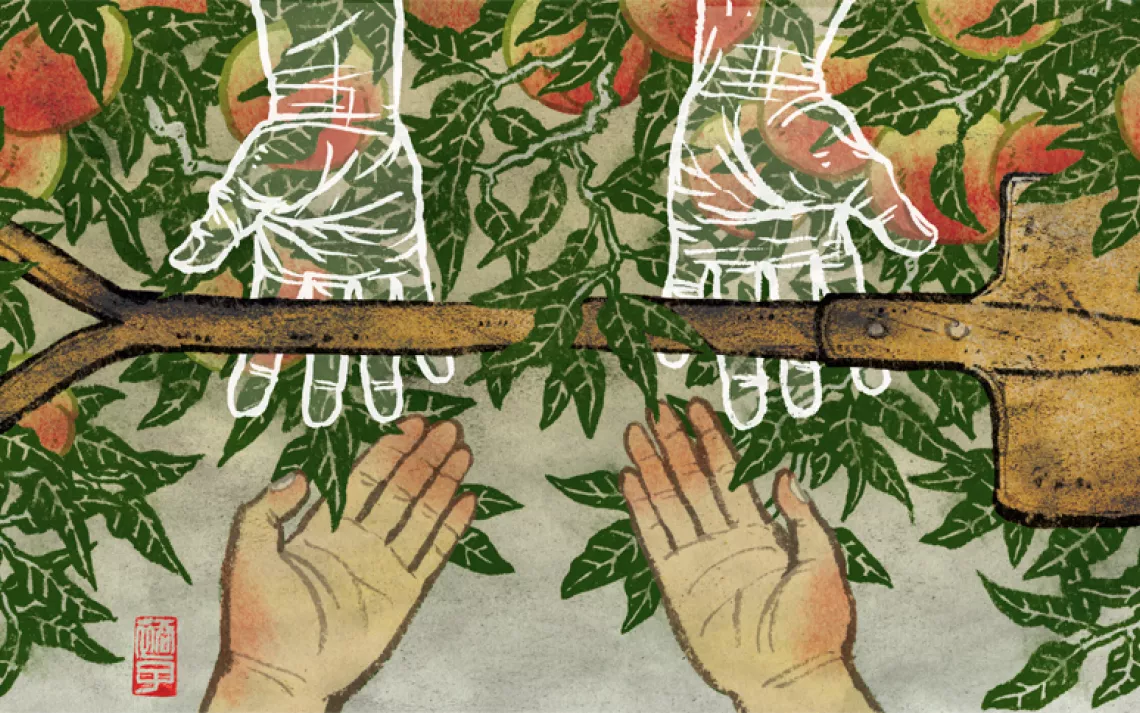
Illustration by Yuko Shimizu
The day my jiichan died, I flew home from graduate school and arrived just in time to be with him during his last hour of life. My family had tended to my grandfather for years, keeping him where we knew he'd be happiest through the end of his life: on our family farm in California's Central Valley, just south of Fresno.
When I walked into the living room with the avocado-green carpet, where his bed had been moved, my father nudged him awake from a morphine-cradled nap. After a great effort to open his eyes, he reached out his hand and we clasped palms diagonally, as brothers might before pulling each other close for a hug. His grip was still firm, and the calluses that I had known since childhood remained, calluses shaped by a lifetime of wielding shovels, fixing tractors, and picking peaches and grapes.
Within 45 minutes of our embrace, he was gone.
I had always planned to return home after college but had not yet found my way back. My jiichan's death changed my relationship with the land and hastened my return. The shovel that he had left leaning against our shed became a link to my ancestors and my life as an aspiring Yonsei (fourth-generation Japanese American) farmer. Mine was among the many Japanese families that had rooted their lives in agriculture and grown a strong presence in California in the early 1900s. They worked in Central Valley vineyards, harvesting grapes to dry into raisins. It was backbreaking work, but it fed the family.
Sadly, my jiichan's shovel is also a link to our farm's hidden and painful story. As my Japanese family and many others made their place in the Central Valley, racist state legislators passed laws that barred Asian immigrants—my great-grandparents included—from purchasing land. Even though Japanese farmers were producing up to 40 percent of California's truck crops by 1941, businesses still hung signs saying "No Japs Allowed." My stomach churns at the racism my family endured.
Then came the war.
In 1942, with no evidence of criminal espionage or proof that the Japanese American community posed a threat, the US government imprisoned my jiichan and his family without trial in Arizona. The concentration camp was built on the Gila River reservation of the Pima Indians, land that they too had been forced onto—two histories of confinement.
When the removal orders came, Japanese Americans could take only what they could carry, and all other property was sold for dirt cheap. Families that owned farms were forced to sell everything. My own family did not own land at the time but did lease a vineyard. The woman who owned it kicked my family off before they could finish the harvest, so she could reap the benefits of their work. My grandfather left enraged by such greed.
The agricultural landscape of our country is not neutral. There are histories of loss and pain, exclusion and greed, resilience and resistance embedded in the soils and stories of people who have worked the earth. The river water that feeds our farm was wrangled from the wild by a dam. Consequently, the largest lake in California, the ancestral water source for the Tachi people, vanished. The social histories of racism are embedded in our agricultural landscape.
What healing remains, and how do we get there? For now, I hold my jiichan's shovel as I work with the soil to grow peaches. As I pick them, I can feel the warmth of the sun on their glowing amber cheeks. The orchards my jiichan planted in the 1960s still thrive. With each scoop of soil in the shovel, I reclaim my place as a Californian and an American.
This article appeared in the March/April 2020 edition with the headline "My Grandfather's Shovel."
 The Magazine of The Sierra Club
The Magazine of The Sierra Club
